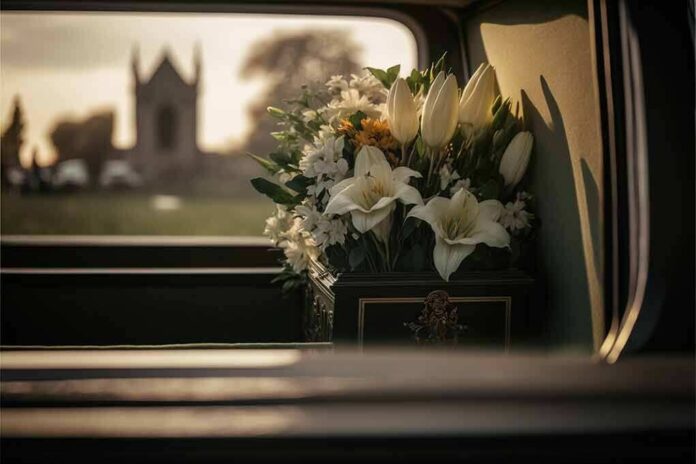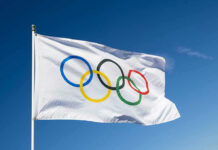
Nearly half of all Americans are tied to Catholicism despite plummeting church attendance, revealing the faith’s enduring cultural influence that transcends weekly Mass participation.
Key Takeaways
- 47% of U.S. adults report some connection to Catholicism, though only 20% identify as practicing Catholics
- Cultural Catholicism remains strong, with 9% feeling ethnically or familially Catholic without practicing
- Only 13% of practicing Catholics maintain high observance (daily prayer, weekly Mass, annual confession)
- Hispanic Catholics represent a growing segment (36%) of American Catholic adults with distinct devotional practices
- A personal relationship with Jesus Christ is considered essential by 69% of Catholics, rising to 91% among weekly attendees
Beyond Weekly Mass: America’s Catholic Identity
While traditional Catholic church attendance continues its decades-long decline, a comprehensive Pew Research Center study reveals that Catholicism’s influence extends far beyond Sunday Mass attendance. One-fifth of Americans identify as Catholic by religion, but the faith’s cultural and familial reach is more than twice that size. The total Catholic footprint includes 9% who consider themselves “cultural Catholics” through ethnic or family ties, another 9% who were raised Catholic but left the faith, and an additional 9% connected through Catholic spouses, parents, or occasional Mass attendance.
“It was striking to see how widespread the connection to Catholicism is,” said Gregory Smith, associate director of research at Pew Research Center.
This extensive network of Catholic connections reflects the Church’s deep historical roots in American society and its continued relevance despite institutional challenges. The findings suggest that while institutional affiliation may be declining, Catholic identity remains resilient through cultural practices, family traditions, and personal spirituality that don’t necessarily require regular church attendance.
— Preston Byrne (@prestonjbyrne) June 6, 2025
Spectrum of Catholic Practice and Belief
The study reveals a wide spectrum of religious practice among self-identified Catholics. Only 13% maintain high observance through consistent practices like daily prayer, weekly Mass attendance, and annual confession. At the other end, 13% rarely or never engage in these religious practices. The vast majority (74%) fall somewhere in between, participating in some Catholic practices but not all consistently. This middle ground represents a significant population maintaining selective Catholic traditions while adapting to modern American life.
“A personal relationship with Jesus Christ” stands as a central marker of Catholic identity for 69% of Catholics, according to the Pew Research Center survey.
Catholic identity is expressed through various essential elements beyond institutional participation. Half of Catholics view devotion to the Virgin Mary as core to their faith, while 46% consider receiving the Eucharist essential—a figure that jumps dramatically to 83% among weekly Mass attendees. These statistics demonstrate how Catholic identity persists through specific devotional practices and beliefs even when regular church attendance wanes.
Hispanic Catholics and Converts: Strengthening American Catholicism
The demographic makeup of American Catholicism continues to evolve, with Hispanic Catholics now representing 36% of U.S. Catholic adults. This growing segment brings distinctive practices and priorities, with Hispanic Catholics more likely to wear religious items, pray the rosary, and emphasize devotion to the Virgin Mary than their white counterparts. Additionally, 40% of Hispanic Americans identify as Catholic, with another 15% considering themselves cultural Catholics, demonstrating the faith’s particularly strong hold in Hispanic communities.
“Cultural Catholics” maintain significant connections to the faith through heritage, family traditions, and cultural practices even when formal religious participation is limited, as the Pew Research Center survey found.
Catholic converts, representing 1.5% of U.S. adults, often demonstrate stronger religious commitment than cradle Catholics. The study found that 38% of converts attend weekly Mass compared to 28% of lifelong Catholics. Nearly half (49%) of these converts joined the Church for marriage or partnership reasons, highlighting the continued importance of Catholic identity in family formation despite broader secularization trends in American society.
Challenges and Retention
Despite Catholicism’s enduring cultural influence, the faith faces significant retention challenges. The research shows that 43% of Americans raised Catholic no longer identify with the faith, often citing value disagreements or simple disinterest. The Church’s highly publicized abuse scandals remain a concern for 62% of Catholics, though 68% believe such abuse is not more common among Catholic clergy than in other religious groups.
“I have struggled all my life with faith,” said Susan Jackson, who was raised Catholic but has since distanced herself from the Church. “I couldn’t walk into a church.”
The study provides valuable insights into how Catholic identity persists even as institutional engagement decreases. This resilience suggests that while traditional measures of religious participation may be declining, the Catholic Church maintains significant cultural capital and influence across American society through family traditions, cultural connections, and selective practice. For conservative Americans concerned about the preservation of traditional values, this enduring Catholic presence represents an important repository of religious and cultural continuity in an increasingly secular age.












